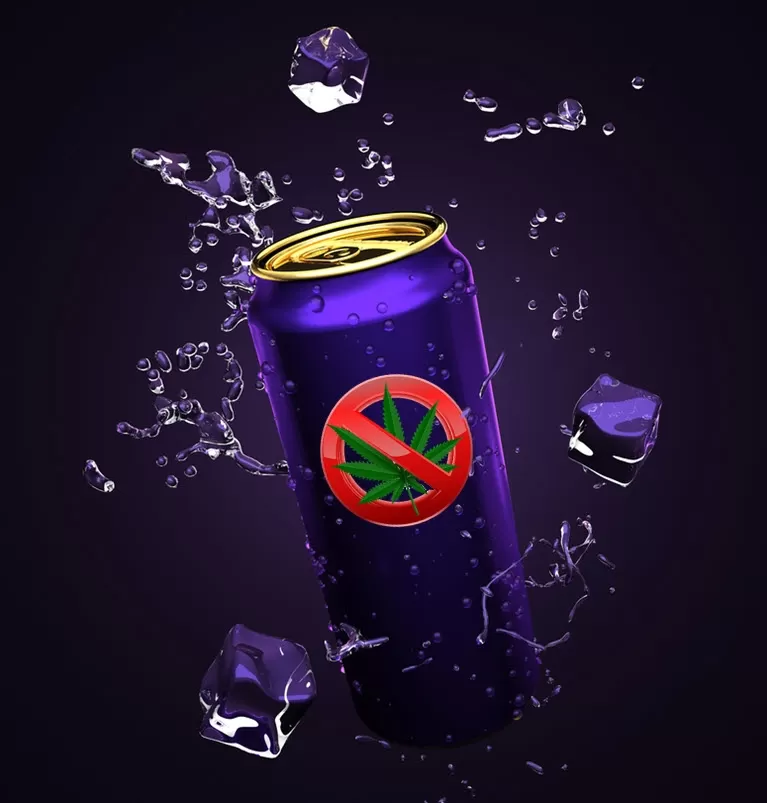Health Canada has advised federally licensed cannabis producers to refrain from using specific terms on labels and in promotions for cannabis-infused beverages. The agency has highlighted words such as “soda,” “root beer,” “cola,” and “ginger ale” as non-compliant with Canada’s stringent cannabis labeling and promotions regulations.
A communication obtained by MJBizDaily reveals that Health Canada has notified the companies manufacturing these products about the issue.
In an email, Health Canada has urged businesses to halt any promotional or labeling practices for cannabis that do not align with regulatory requirements. This enforcement action could significantly impact the thriving market of carbonated cannabis beverages, which currently represent approximately 60% of all cannabis beverage sales.
According to an analysis conducted by market analytics firm Headset, nearly half of the top-selling carbonated cannabis beverages could face repercussions from this directive.
George Smitherman, CEO of the Cannabis Council of Canada, expressed his bewilderment regarding Health Canada’s recent actions. In a phone interview, he highlighted that the variety of adult-oriented beverages available in stores inaccessible to children has significantly improved. However, he expressed concerns about the impact of these labeling restrictions, which he believes lack scientific basis and may force many companies out of business.
An anonymous industry executive shared similar concerns, specifically regarding the potential negative effects of infused beverage marketing. The executive expressed uncertainty about what alternative labeling options would satisfy Health Canada’s requirements while adequately informing potential consumers about the offered product.
In response to inquiries from MJBizDaily, Health Canada confirmed its ongoing communication with the cannabis industry regarding beverages that include terms related to “soda” in their names. A spokesperson referred to a policy statement on the Cannabis Act and stated that Health Canada determines whether a product appeals to young people based on specific circumstances and factors.
These factors encompass the product’s name, shape, smell, color, flavor, and how it is presented to consumers. According to the spokesperson, terms such as “soda,” “root beer,” “cola,” and “ginger ale” are considered potentially attractive to youth due to their association with soft drinks, which falls under the prohibited examples outlined in the policy statement.
The email stated that employing these terms could potentially lead to selling cannabis products with packaging or labeling that violates regulations. The spokesperson emphasized that, if necessary, Health Canada could undertake enforcement actions to address non-compliance or minimize potential risks to public health and safety.
The letter outlines that the Cannabis Act prohibits:
- The promotion of cannabis, accessories, or any services if there are reasonable grounds to believe it could appeal to youth.
- The sale of cannabis or accessories if there are reasonable grounds to believe the packaging or labeling could appeal to young individuals.
MJBizDaily inquired whether the prohibition on “soda” also applies to other products like gummies and dried herbs. As of now, the agency has not responded to the inquiry.
Impact on the market
Over the past few years, there has been significant growth in the sales of carbonated cannabis beverages. In the provinces tracked by Headset, these beverages generated around 22.7 million Canadian dollars ($17 million) in sales in 2021.
This figure experienced a 70% year-over-year increase, reaching CA$38.6 million in 2022. As of the first five months of 2023, sales have already reached CA$22 million, indicating a trajectory that could lead to the category approaching CA$50 million in sales this year.
According to data from Headset, the sales monitoring agency for Alberta, Ontario, British Columbia, and Saskatchewan, these provinces collectively contribute to around 75% of all legal recreational marijuana sales in Canada. The data further suggest that approximately half of the top 20 carbonated cannabis beverages, based on sales from June 2022 to May 2023, had at least one prohibited word in their brand name.
During that period, the three highest-selling carbonated cannabis beverages were as follows:
- “Cream Soda” – a product by Truss Beverage Co. under the XMG brand.
- “Cherry Cola” – produced by Electric Brands Inc. under the Sweet Justice brand.
- “Mango Pineapple Sparkling Drink” – offered by Truss.
Pushback From Industry
According to Smitherman from the Cannabis Council of Canada, industry representatives are currently discussing this development with Health Canada. Smitherman expressed that they have not given up on the matter and emphasized the active involvement of their beverage caucus group.
They have been actively corresponding with Health Canada through letters and remain committed to urging Health Canada to provide scientific justification for their actions. Do cannabis seltzers qualify as youth-based?
Smitherman highlighted that the regulations in Canada restrict legal businesses from having sufficient flexibility to define and distinguish their products effectively. He expressed frustration at Health Canada’s meticulous focus on minute details concerning cannabis, which has strict protective measures in place, while alcohol regulations are comparatively lenient.
The executive, who remained anonymous, emphasized that cannabis consumers anticipate the availability of legally infused beverages with familiar flavors and qualities, similar to soda and cola.
The complexity surrounding these legal products ultimately favors the illicit market, as they can offer competitive products without any limitations on naming or design elements. The restrictions imposed by Health Canada negatively impact the ability of legal and regulated products to compete effectively with their illicit counterparts.
Conclusion
Health Canada’s restrictions on labeling and promotions for infused beverages using specific terms like “soda,” “root beer,” “cola,” and “ginger ale” have sparked concerns within the cannabis industry. This enforcement action could significantly impact the thriving market of carbonated cannabis beverages, which currently represents a substantial portion of cannabis beverage sales.
Industry insiders, including George Smitherman of the Cannabis Council of Canada, question the scientific basis behind these restrictions and worry about the negative consequences for businesses. The regulations’ potential to hinder competition with the illicit market is also a significant concern. The cannabis industry is actively engaging with Health Canada to seek clarity and advocate for more product definition and differentiation flexibility. (Full Story)

